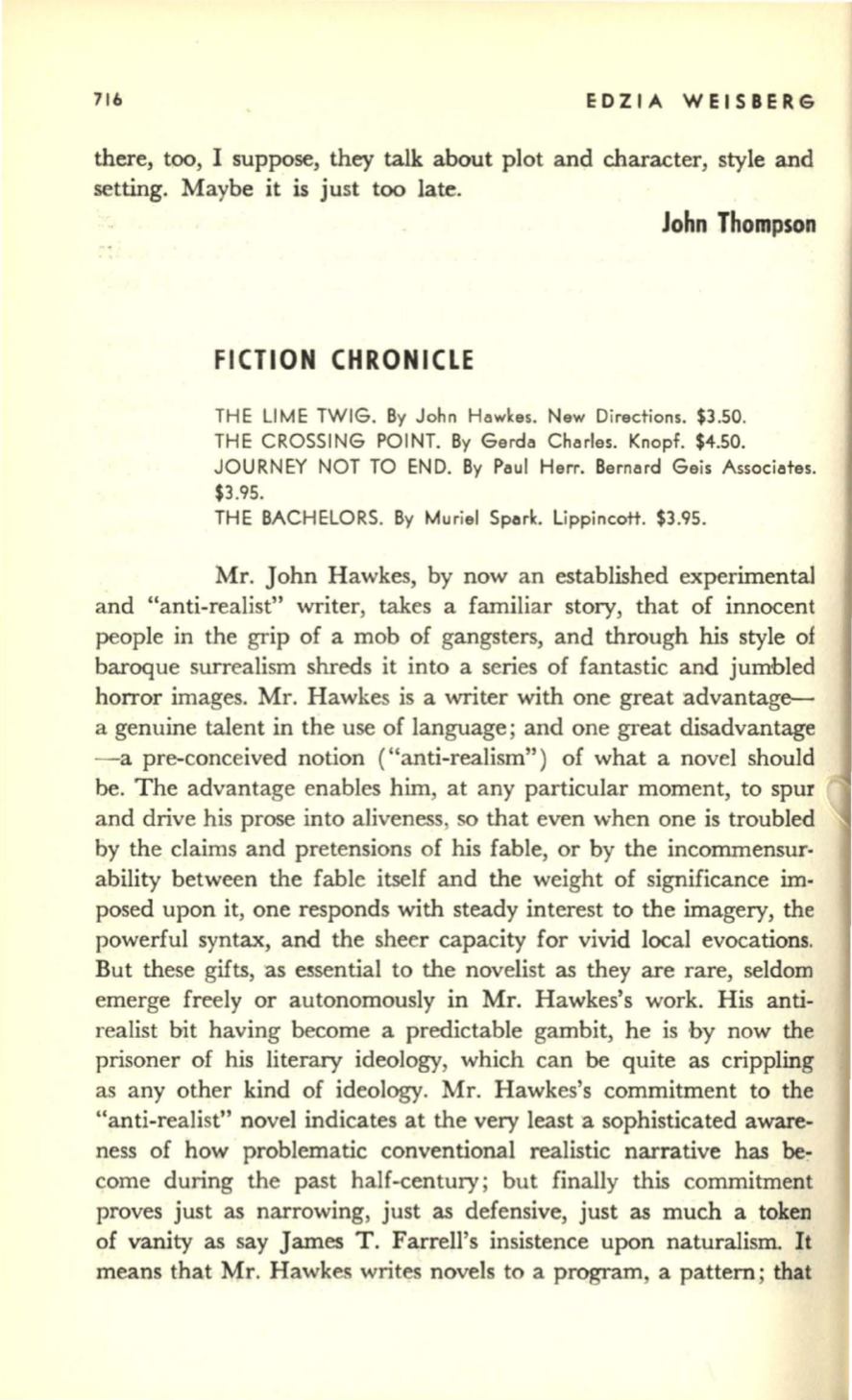
716
EOZIA WEISBERG
there, too, I suppose, they talk about plot and character, style and
setting. Maybe it is just too late.
John Thompson
FICTION CHRONICLE
THE LIME TWIG. By John Howkes. New Directions. $3 .50.
THE CROSSING POINT. By Gerdo Chorles. Knopf. $4.50.
JOURNEY NOT TO END. By Poul Herr. Bernord Geis Associotes.
$3 .95.
THE BACHELORS. By Muriel SpDrk. Lippincott. $3 .95.
Mr. John Hawkes, by now an established experimental
and "anti-realist" writer, takes a familiar story, that of innocent
people in the grip of a mob of gangsters, and through his style of
baroque surrealism shreds it into a series of fantastic and jumbled
horror images. Mr. Hawkes is a writer with one great advantage–
a genuine talent in the use of language; and one great disadvantage
- a pre-conceived notion ("anti-realism") of what a novel should
be. The advantage enables him, at any particular moment, to spur
and drive his prose into aliveness, so that even when one is troubled
by the claims and pretensions of his fable, or by the incommensur·
ability between the fable itself and the weight of significance im·
posed upon it, one responds with steady interest to the imagery, the
powerful syntax, and the sheer capacity for vivid local evocations.
But these gifts, as essential to the novelist as they are rare, seldom
emerge freely or autonomously in Mr. Hawkes's work. His anti–
realist bit having become a predictable gambit, he is by now the
prisoner of his literary ideology, which can be quite as crippling
as any other kind of ideology. Mr. Hawkes's commitment to the
"anti-realist" novel indicates at the very least a sophisticated aware–
ness of how problematic conventional realistic narrative has
be~
come during the past half-century; but finally this commitment
proves just as narrowing, just as defensive, just as much a token
of vanity as say James T. Farrell's insistence upon naturalism.
It
means that Mr. Hawkes writes novels to a program, a pattern; that


